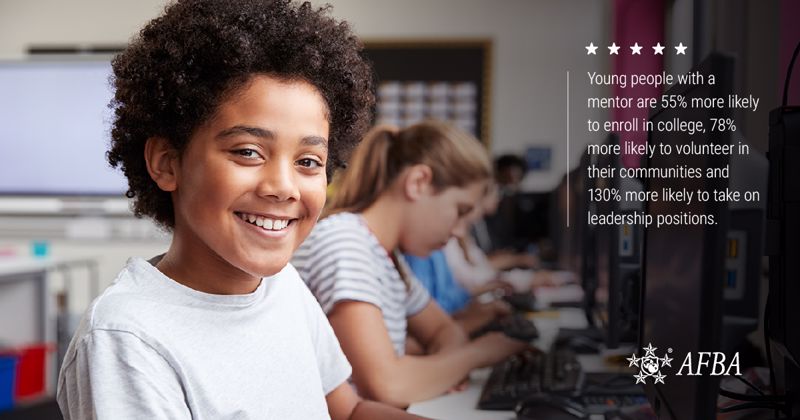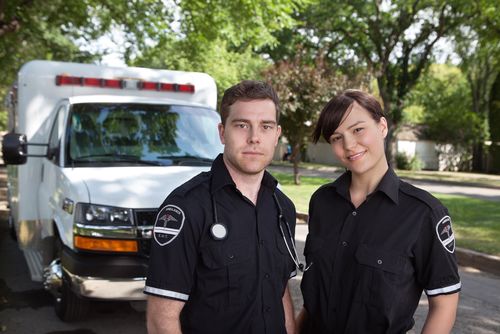In recognition of National Mentoring Month this January, we're highlighting how people in first responder professions can make an impact by mentoring young members of the community.
What is National Mentoring Month?
Since 2002, National Mentoring Month has been hosted each January by MENTOR: The National Mentoring Partnership in partnership with the Harvard T.H. Chan School of Public Health. MENTOR is on a mission to "fuel the quality and quantity of mentoring relationships for America's young people and to close the mentoring gap for the one in three young people growing up without this critical support."
The campaign's mission is to raise awareness around the value of high-quality mentoring experiences, particularly for young people. Caring adult mentors have the power to help mentees make responsible decisions and carve out a path for themselves in their communities and future careers.
This year, the chosen theme is Mentoring Amplifies. The month-long observance amplifies the positive impact mentoring can have, and how such experiences can amplify potential, confidence, connections and more for young mentees.
Mentors help tomorrow's leaders lay a solid foundation for the future
According to the National Mentoring Month organizers, young people who have a mentor are 55% more likely to enroll in college, 78% more likely to volunteer in their local communities and 130% more likely to take on leadership positions.
Being able to connect with a committed mentor gives the leaders of the future opportunities to discover new career fields and possibilities. They can also discuss their aspirations and benefit from a support system outside of their school and household.
Real-world heroes can make a difference in young peoples' lives
Many children look up to firefighters, police officers and emergency medical professionals as real-life superheroes. Some even dream about joining these professions when they grow up. As these little dreamers mature into young adults, first responders can make a meaningful and tangible impact through mentorship.
They can talk about and demonstrate the values of helping others and serving the community. They can help young people learn about qualities like courage and selflessness as well as valuable skills like leadership and teamwork.

A glimpse at first responder mentoring in action
The First Responders Explorer Post #58 of Quakertown, Pennsylvania, is just one example of how first responder agencies can add value to the community through mentorship programs.
In partnership with the local school district and Boy Scouts troop, members of the Quakertown police and fire departments and emergency medicine technicians (EMTs) give high school students real-world exposure to each of these three professions. Participants are invited to climb fire truck ladders, view K9 unit demonstrations, tour 911 call centers and forensic labs and listen in on how real calls are received and how EMT teams, firefighters and police officers dispatched.
As explained by the Department of Justice's Community Policing Dispatch newsletter, this experience gives participants in the mentoring program a look at the collaborative and interdisciplinary nature of these departments. Students can cultivate critical thinking and emergency response skills to apply in their own lives. Plus, it helps the mentees understand the difference between the first responders portrayed on TV and the realities of the job and the people who fill these critical roles.
The benefits of mentoring aren't just for kids
Mentoring young people can have a significant impact on the adults who participate in such programs as well. Supporting and encouraging a mentee can bring a sense of personal fulfillment and accomplishment, especially when it's clear the impact those hours and interactions have had on the mentee.
Furthermore, becoming a mentor — whether through a local initiative or a national mentoring organization — opens the door to the wider mentoring community. Connecting with like-minded people who are excited about making a difference in young peoples' lives can be a positive side effect.
Finally, these experiences can also leave mentors more open-minded and empathetic, with a new perspective of the world as seen through their mentee's eyes. Just a few hours per week can make a major difference for both the first responders and the young people they work with.

